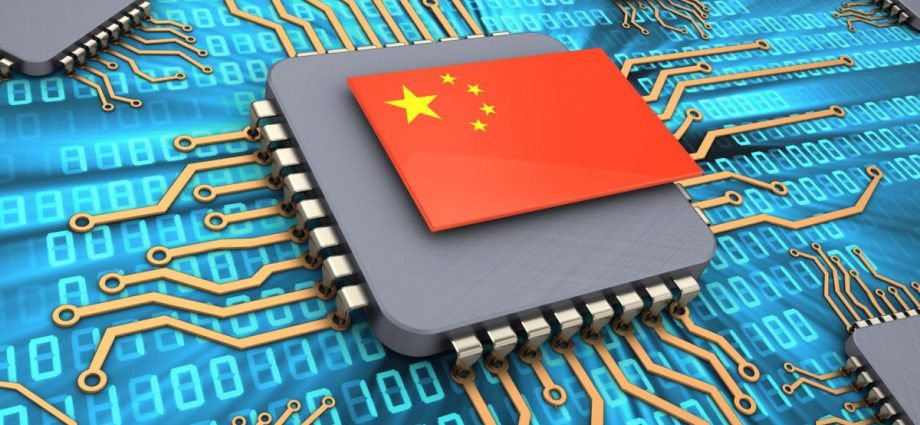China aims to recruit and groom a new team of strategic scientists and engineers in an inward-looking reaction to new US sanctions that will force American experts to quit working at Chinese semiconductor fabs.
On October 18, the Ministry of Industrial and Information (MIIT) suggested in an opinion document that China should encourage top graduates to enter the micro-electronic sector and provide all possible resources and support to nurture them into top-tier scientists and engineers.
Li Guojie, chief scientist of the Chinese Academy of Sciences (CAS), said that the first criterion for such recruits should be patriotism. He said strategic scientists should have the initiative to help China achieve essential technological breakthroughs and the ability to lead top scientists and engineers.
The calls were made after the US announced earlier this month that US citizens would be banned from providing services to certain Chinese fabs beginning on October 12. The curbs have reportedly forced some American Chinese chip experts to quit their jobs in China.
On August 9, US President Joe Biden signed the CHIPS and Science Act to boost domestic semiconductor production and scientific research to enhance US competitiveness and secure supply chains vis-a-vis China.
On August 12, the US Commerce Department’s Bureau of Industry and Security (BIS) banned shipping to China electronic design automation (EDA) software used in making the most cutting-edge 3-nanometer (nm) chips.
Early last month, the BIS initiated a new ban on exports of several high-end chips made by NVIDIA and AMD to hamper China’s artificial intelligence (AI) sector. In its latest move, the BIS said US citizens would be forbidden to support the development or production of integrated circuits at certain chip fabs in China without a license.
Media reports said top American Chinese engineers including Gerald Yin, the chairman and general manager of AMEC, are facing a tough decision about whether they should stay in mainland China faced with the new US sanctions.

On October 18, China’s MIIT released a document outlining how China would replenish its talent pool and achieve technological breakthroughs, namely in the chip sector. The document was internally approved on October 10, only several days after the announcement of the US curbs.
The MIIT said it would soon unveil special policies to encourage the formation of innovative technological teams and the recruitment of top technology experts. MIIT also said it would allocate more resources to groom young scientists and engineers while setting up new academies and research centers for them.
It also said the government would provide small and medium-sized technology firms, particularly those in core positions in the industrial supply chains, with more resources to train their engineers. It said academic and research institutes should cap the time of non-academic or non-research work for their staff at no more than one day per week.
At the same time, academician Li Guojie wrote in an article that there are many technological problems that need to be solved by top engineers with strategic minds.
“Why China vows to groom a pipeline of strategic scientists is that there is an urgent need of experts who understand how to help it develop self-reliant technologies amid a severe international environment,” Li said without mentioning the US curbs.
Li said that when he led a delegation of the High Performance Computer Research Center to visit the US in 1991, he was told by a well-known American Chinese scientist that China should focus on the research of accessories such as mouses, keyboards and monitors, instead of aiming at high-performance computers.
He said from that time he realized that China should not rely on scientists who lacked patriotism and lived overseas for a long time.
He praised the deceased SMIC Chairman Jiang Shangzhou for having contributed his whole life to bringing foreign chip technologies to China. He also said it was Jiang who persuaded Gerald Yin, who had worked at Intel for many years, to return to China and help build up Shanghai’s chip sector, which now has annual revenues of 200 billion yuan (US$27 billion).
Li also described Deng Jiaxian, a Chinese nuclear physicist and an academician at the Chinese Academy of Sciences, as a strategic scientist for his contributions to China’s high-performance computer sector.
“Some people thought that when China could make the world’s most advanced lithography, the development of its integrated circuit sector would not be limited by others. These people then urged the government to invest to make it at any cost,” Li said.
However, he said the CAS found that China did not have three-quarters of the 164 parts used in extreme ultraviolet (EUV) lithography equipment, which can make 14nm chips. He said China would not even be able to make deep ultraviolet (DUV) lithography machines, representing five-generation older equipment, anytime soon.

He said he had suggested that China should now focus on matured technologies, including 28nm to 55nm chips but he understood that such a recommendation would not be popular. The comments marked the first time a top CAS official has acknowledged that China has so far failed to make its own lithography machines.
In mid-July this year, Xiao Yaqing, China’s minister of industry and information technology, was arrested for suspected violations of the Communist Party’s discipline and laws. Zhao Weiguo, former president of Tsinghua Unigroup, a semiconductor maker, was also taken away by investigators for allegedly being involved in irregular procurement activities.
Meanwhile, a dozen senior executives in the chip sector were under investigation. Senior Chinese officials complained that the government has poured tens of billions of dollars into the semiconductor industry over the past decade but has not yet achieved the expected results, Bloomberg reported in August.
Read: China-based US chip experts face stay-go dilemma
Read: China’s laggard chips industry rotten with corruption
Follow Jeff Pao on Twitter at @jeffpao3

